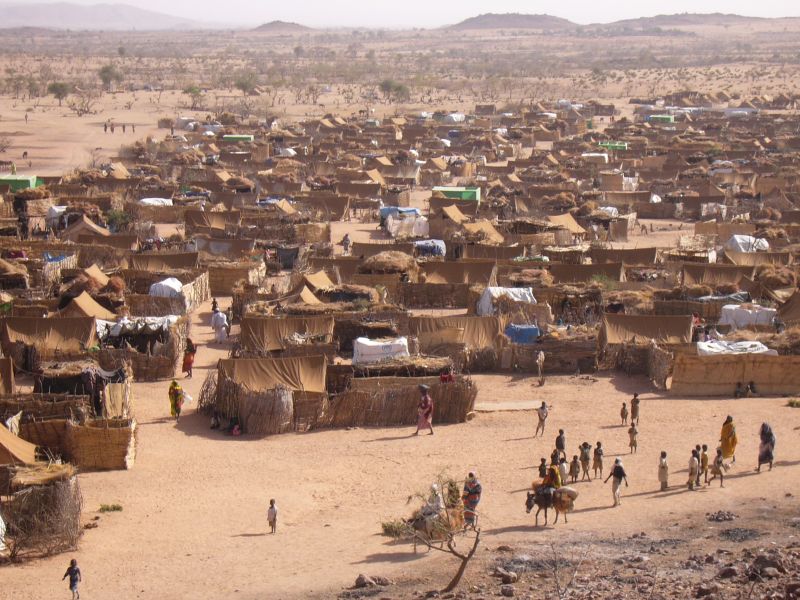
It’s the 70th anniversary of the United Nations’ Refugee Convention
Is it still adequately protecting forcibly displaced people?
Throughout human history, there have been refugees - people who flee their home because of “a well-founded fear of being persecuted”. But it was only 70 years ago, as the world recoiled from the horrors of the Holocaust, that human beings decided states should take on a legal responsibility for protecting such people. Today, 149 countries have signed up to that Refugee Convention. It requires them to provide a safe new home to any refugee who crosses their borders.
The motivations behind this idea were humanitarian and moral, not economic. Unlike with other types of migrants, countries do not assess refugees on things like their human capital (skills and experience), job opportunities or income level. However, that has not stopped economics from remaining closely bound up with opinions and policies towards refugees. Nor does it mean that refugees do not have a substantial economic impact on their new homes, especially when large numbers of them move to an area within a short space of time.
Like all human beings, each refugee interacts with their local economy in multiple ways. When refugees become workers, consumers and taxpayers in the area they moved to, they add money to its economy. When they become inventors, scientists, artists and business owners, they add new technologies, knowledge, wealth and jobs. When they become community members they add new cultures, perspectives and human connection. At the same time, each refugee will consume a variety of economic resources, including housing, jobs, food and government revenue.
If the balance between refugees’ economic contribution and economic consumption is (or is perceived to be) tilted towards the latter, questions are often raised about who should take responsibility for those costs. There are three main options: (1) the refugees themselves, (2) their host country’s government, and (3) private individuals and charities.
In many cases, option one is not actually an option, because many refugees do not have access to enough resources to meet their own economic needs. Fleeing from danger often means having to leave behind most of the things you previously used to support yourself, such as jobs, land and valuable possessions. It also often means leaving behind things that would help you generate new forms of income: the right to work (many countries, including the UK, put restrictions on working while refugee claims are assessed), knowing the language of the place you’re living in, having your qualifications recognised, even having a community support network that could be drawn upon for help with things like childcare.
Option two - the host countries - seems like it should be the obvious choice. After all, it is they that signed up to the Refugee Convention in the first place! Plus, governments generally have a mandate to ensure the population they preside over lives well, and it is a country's society that will benefit the most if refugees are given the support to become assimilated and increase their economic contributions. There are, however, some snags to this idea. One is that many governments rely on locals for at least some of their power and money (through taxes), and it’s not uncommon for locals to be against large amounts of state resources being spent on foreigners, including refugees.
Another problem is that because refugees are not evenly distributed amongst the 149 signatories of the Refugee Convention, some countries end up shouldering much more of the financial costs. Most of these countries are not rich and therefore have fewer government resources to spend on refugees. According to the data of the United Nations,two-fifths of refugees live in just five countries, only one of which, Germany, is considered to be ‘high-income’.
This situation seems unlikely to change anytime soon, because despite the Convention, many countries around the world go to great lengths to keep their refugee numbers down. Globally, 26.4 million people have been officially granted refugee status. (This tally does not count the millions more whose claims are pending and who have been ‘forcibly displaced’ but haven’t officially claimed asylum). Just 132,349 - about 0.05 percent - are settled in the UK.
That leaves charities. But because charities get their money from donations, the amount of resources they have will fluctuate depending on how generous would-be donors are feeling at any given time. And often, donations drop when crises are biggest. The Covid-19 pandemic is an example of this. The scale of the impact the pandemic is having means many donors are distracted and grappling with its effect on their own lives, and/or having their attention and money pulled in many different charitable directions. The upshot is that despite the disease and accompanying restrictions having a disproportionate effect on refugees’ health and wellbeing, there are currently fewer resources available to help them. The World Food Programme, for example, recently announced that it has had to cut the rations it gives out to refugees in East Africa by 30 percent.
So while the situation for refugees may be better than it would be if the Refugee Convention didn't exist, the support for displaced and vulnerable people around the world still seems somewhat shaky. That is of concern to many people, not least because the number of refugees is predicted to increase a lot in the next few years, due to the fallout from things like climate change.
Read our explainer on: the United Nations.



